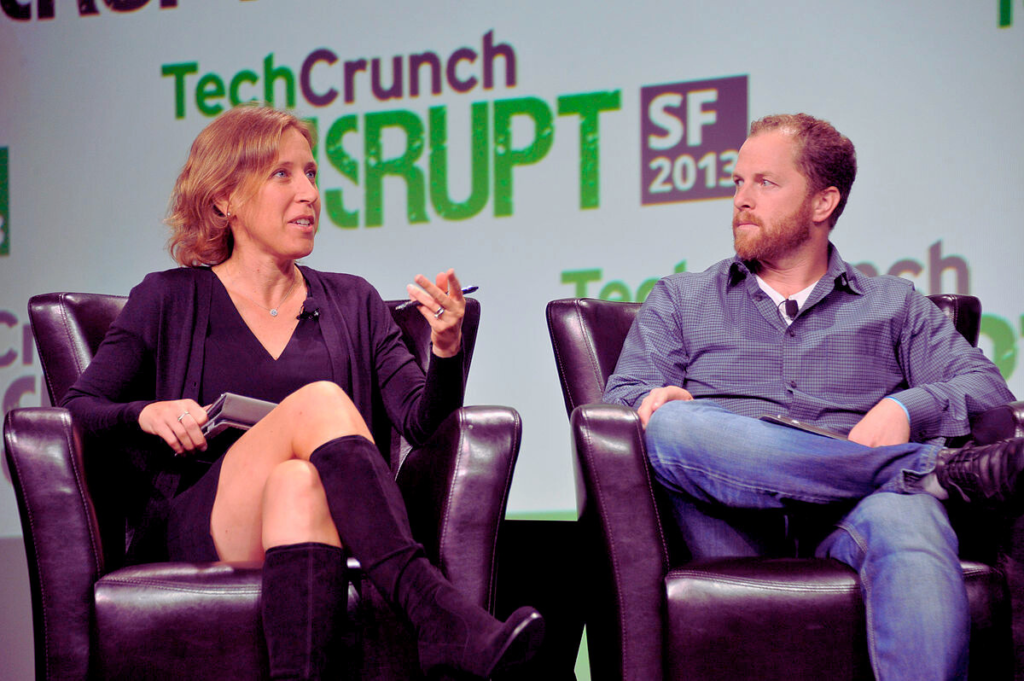
Susan Wojcicki, a pioneering leader in the tech industry and the former CEO of YouTube, passed away at the age of 56 after a courageous two-year battle with non-small cell lung cancer. Her death on August 10, 2024, marks a significant loss not only to her family and friends but also to the global tech community, where her influence has been profound and lasting.
Wojcicki was born on July 5, 1968, in Santa Clara County, California, and grew up in a family that valued education and creativity. Her mother, Esther Wojcicki, is an educator, and her father, Stanley Wojcicki, was a physics professor at Stanford University. This academic environment undoubtedly shaped Susan’s intellectual curiosity and drive, which she carried into her career.
After earning her bachelor’s degree in history and literature from Harvard University, Wojcicki went on to receive a master’s degree in economics from the University of California, Santa Cruz, and an MBA from UCLA Anderson School of Management. Her educational background provided a solid foundation for her future endeavors in the tech industry.
Wojcicki’s journey with Google began in 1998 when she rented out her garage to Larry Page and Sergey Brin, who were then Ph.D. students at Stanford University working on a search engine project. This garage would later become Google’s first office, and Wojcicki herself would become the company’s first marketing manager, joining as employee number 16. Her early contributions to Google were pivotal, particularly in the development and growth of the company’s advertising and analytics products. She played a key role in the creation of AdSense, a program that revolutionized online advertising by enabling websites to earn revenue by displaying Google ads. AdSense became one of Google’s primary revenue streams and helped the company establish its dominance in the digital advertising space.
However, one of Wojcicki’s most significant achievements was her role in Google’s acquisition of YouTube in 2006. At the time, YouTube was a rapidly growing video-sharing platform that had caught the attention of tech giants. Wojcicki recognized the potential of YouTube and advocated for its acquisition, a move that would prove to be one of the most successful in tech history. The $1.65 billion deal was initially seen as a risky investment, but under Google’s ownership, YouTube blossomed into the world’s largest video platform, fundamentally changing how people consume and create content.
In 2014, Wojcicki was appointed CEO of YouTube, taking the reins at a time when the platform was experiencing exponential growth. During her nine-year tenure as CEO, YouTube expanded its reach to over two billion monthly users and became a cultural phenomenon, with millions of creators sharing content on the platform. Wojcicki was instrumental in launching several key initiatives, including YouTube’s subscription services like YouTube Premium and YouTube TV, which diversified the platform’s revenue streams and enhanced user experience.
Wojcicki’s leadership also came with significant challenges. As YouTube grew, so did its responsibility in content moderation. Under her leadership, the platform navigated complex issues surrounding misinformation, hate speech, and copyright infringement. Wojcicki worked to implement policies and technologies aimed at creating a safer and more inclusive environment on YouTube, though the platform’s efforts in these areas have been met with mixed reactions from the public and policymakers.
Despite these challenges, Wojcicki’s tenure at YouTube is widely regarded as a success. She was a vocal advocate for creators and worked to improve their ability to monetize content. Her efforts led to the introduction of new revenue streams for creators, including Super Chat, channel memberships, and the YouTube Partner Program. These initiatives not only supported the financial independence of creators but also fostered a vibrant and diverse content ecosystem on the platform.
In February 2023, Wojcicki announced her decision to step down as CEO of YouTube, citing a desire to focus on her health and personal projects. Her departure marked the end of an era for YouTube, but her impact on the platform and the broader tech industry remains indelible. Wojcicki was succeeded by Neal Mohan, her longtime collaborator and YouTube’s Chief Product Officer, who has continued to build on the foundation she established.
Following her passing, tributes poured in from across the tech world. Google CEO Sundar Pichai expressed his deep sadness, calling Wojcicki a “dear friend” and highlighting her pivotal role in Google’s history. “She was an incredible person, leader, and friend who had a tremendous impact on the world, and I’m one of countless Googlers who is better for knowing her,” Pichai wrote. Many others in the tech community echoed these sentiments, remembering Wojcicki not only for her professional achievements but also for her kindness, mentorship, and advocacy for women in tech.
Wojcicki’s legacy extends beyond her contributions to Google and YouTube. She was a trailblazer for women in technology, often speaking out about the challenges and opportunities for women in the industry. She championed initiatives to increase diversity and inclusion in tech, believing that a more diverse workforce would lead to greater innovation and success.
Susan Wojcicki is survived by her husband, Dennis Troper, and their five children. Her family has asked for privacy during this difficult time as they mourn the loss of a beloved wife and mother. Wojcicki’s impact on the tech world, and on the countless lives she touched, will be felt for generations to come (WTAQ News Talk) (DNyuz).
